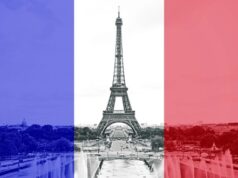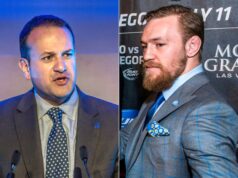The opposition in Venezuela is split over how to handle the upcoming elections in December. Henrique Capriles, a former presidential candidate, broke an existing non-participation pact with the interim leader of Venezuela, Juan Guaidó, to run in the election.
Since 2018, a strained and fragile pact has existed between the various groups and parties opposed to President Maduro’s rule, The opposition is comprised of four main political parties, as well as 33 smaller political parties and organisations. They have recently been calling for greater international pressure to aid in the overthrow of Maduro.
After watching their country’s economy stagnate, and people suffer at the hands of a police and military that have no concern for human rights, the opposition are at breaking point. They have tried numerous different tactics to unseat Maduro from power, including massive protests, strikes and international sanctions (on over 150 companies, vessels and individuals) associated with Maduro. They have offered amnesty to Maduro, attempted a coup, and even considered a mercenary invasion of the country.

Mr Guaidó is losing popularity amongst the people of Venezuela. A recent opinion poll by Datanalisis put his popularity at 17%, compared to Maduro’s 13%. He has also faced criticism from his own side after sending representatives to take part in talks with Maduro in Norway.
In January, Mr Guaidó was blocked by the police from entering the National Assembly for a vote on keeping his role as Speaker. This drew new condemnation of Maduro’s government from Mexico.

Due to this constant failure, two prominent members of the united opposition have declared that they will run in the December election after allegedly being in secret talks with Maduro.
These talks were held between the Government and Henrique Caprilies, a presidential candidate who narrowly lost to Maduro in 2014, and Ivan Stalin Gonzalez, an opposition lawmaker. Caprilies attacked Guaidó, saying: “We’re not going to leave the people without an option.”
The talks were declared a success by the two men after 50 political prisoners were freed, and criminal cases against 60 dissidents were dropped.

Guaidó said of the split: “Of course it hurts right now, but this is like when one member of a family decides to leave or distance themselves. It’s their own choice. But the family must stay united.”
This action created a division on an international level between the USA and the EU. The US Secretary of State, Mike Pompeo, stated that conditions do not exist for free and fair elections, and releasing prisoners does not change this.
On the other hand, the European Union foreign policy chief said that the pardoning was “good news”, and an essential precondition for “continuing to advance towards the organisation of free, inclusive and transparent elections”.
Several academics have said that the opposition’s boycott strategy is no longer a sustainable solution to the situation, and suggested either standing for election or entering talks with the Government.
The divisions that exist between the various parties in the opposition have therefore allowed Maduro to remain in power for the time being, and have broken a previously united international response to the situation.



